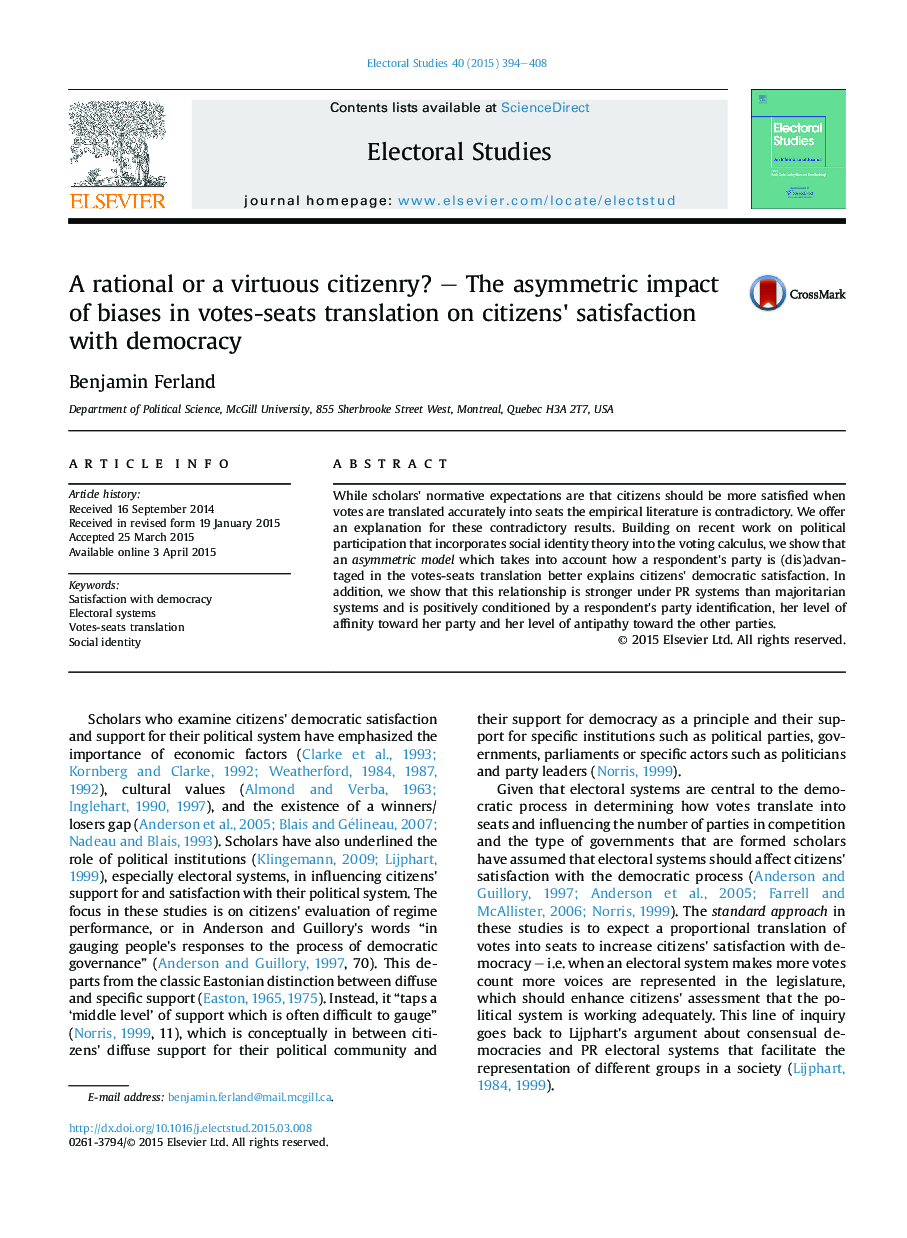| Article ID | Journal | Published Year | Pages | File Type |
|---|---|---|---|---|
| 7463944 | Electoral Studies | 2015 | 15 Pages |
Abstract
While scholars' normative expectations are that citizens should be more satisfied when votes are translated accurately into seats the empirical literature is contradictory. We offer an explanation for these contradictory results. Building on recent work on political participation that incorporates social identity theory into the voting calculus, we show that an asymmetric model which takes into account how a respondent's party is (dis)advantaged in the votes-seats translation better explains citizens' democratic satisfaction. In addition, we show that this relationship is stronger under PR systems than majoritarian systems and is positively conditioned by a respondent's party identification, her level of affinity toward her party and her level of antipathy toward the other parties.
Related Topics
Social Sciences and Humanities
Social Sciences
Geography, Planning and Development
Authors
Benjamin Ferland,
